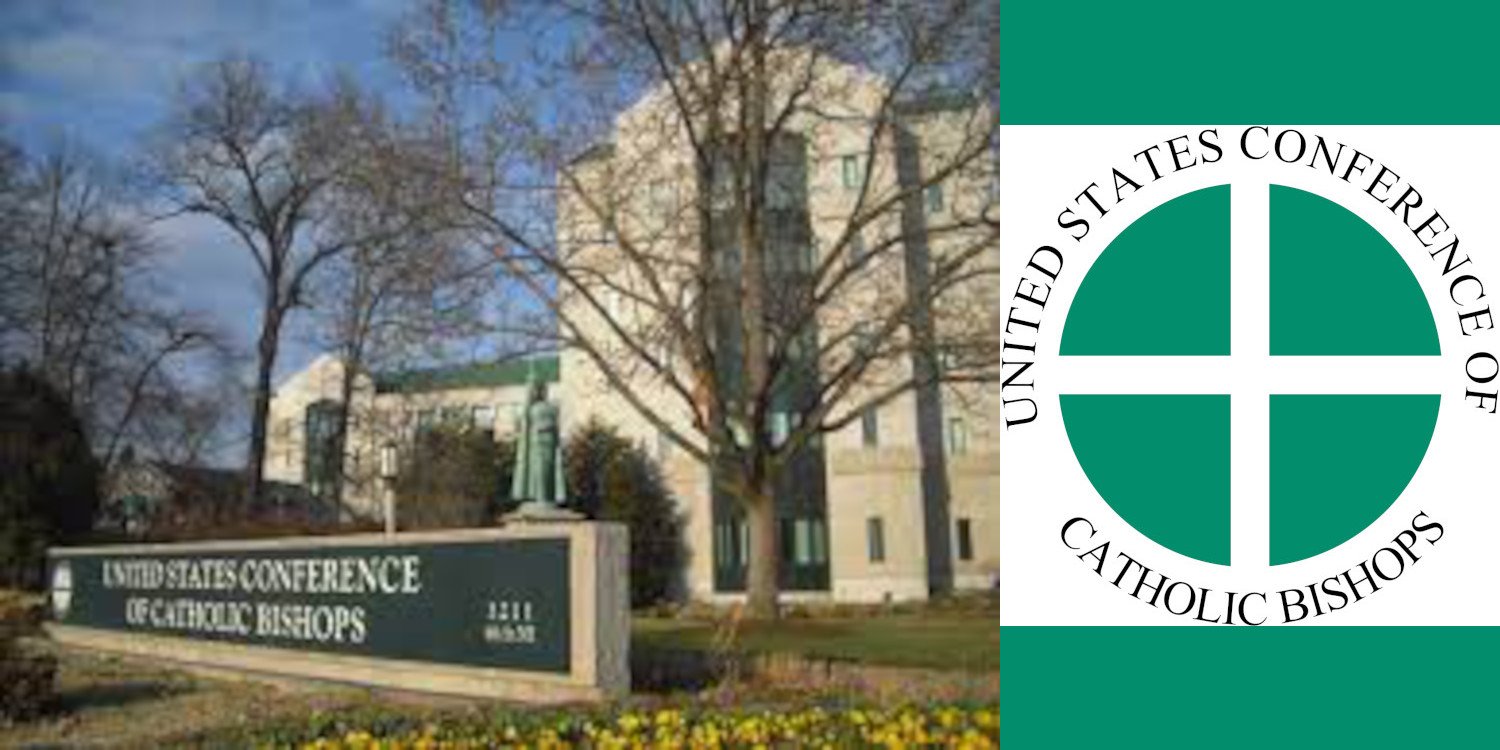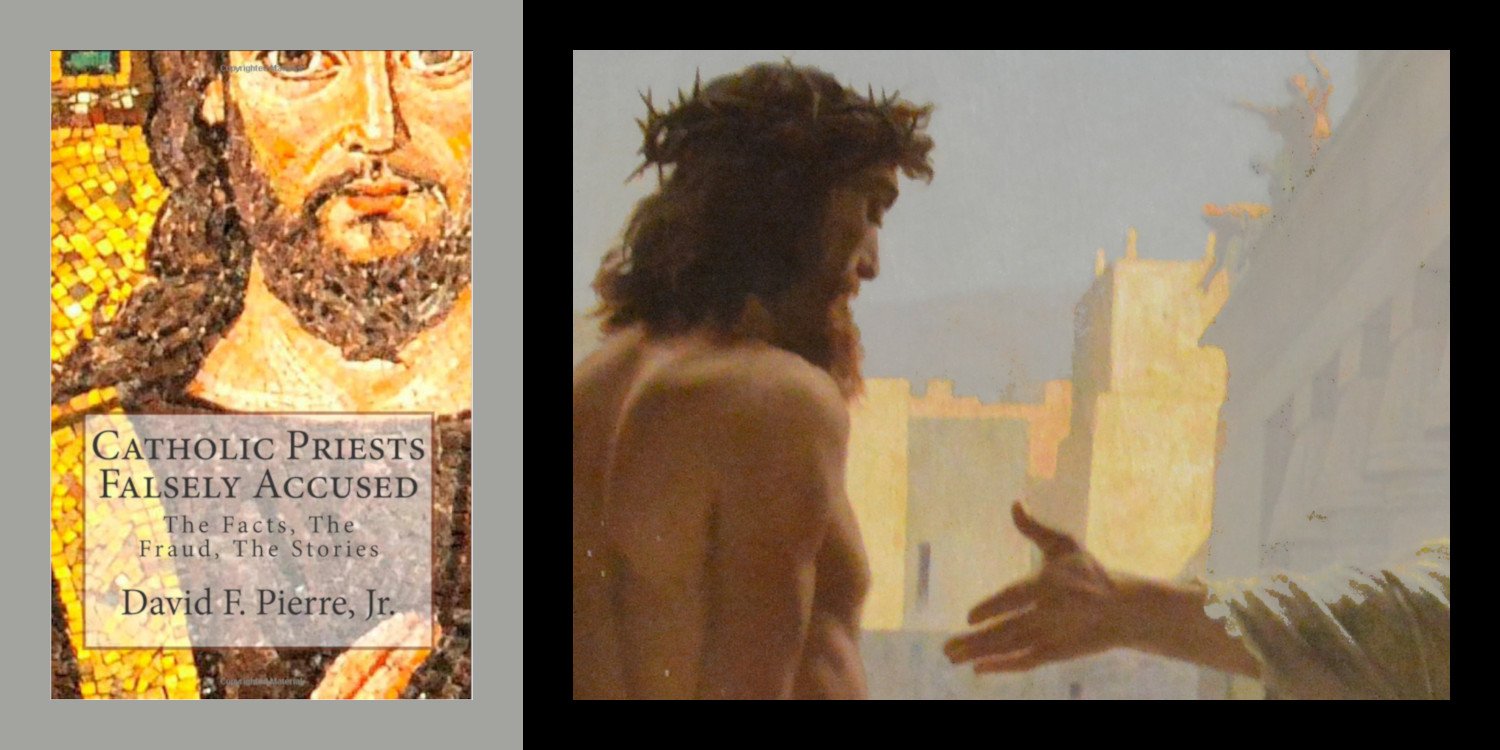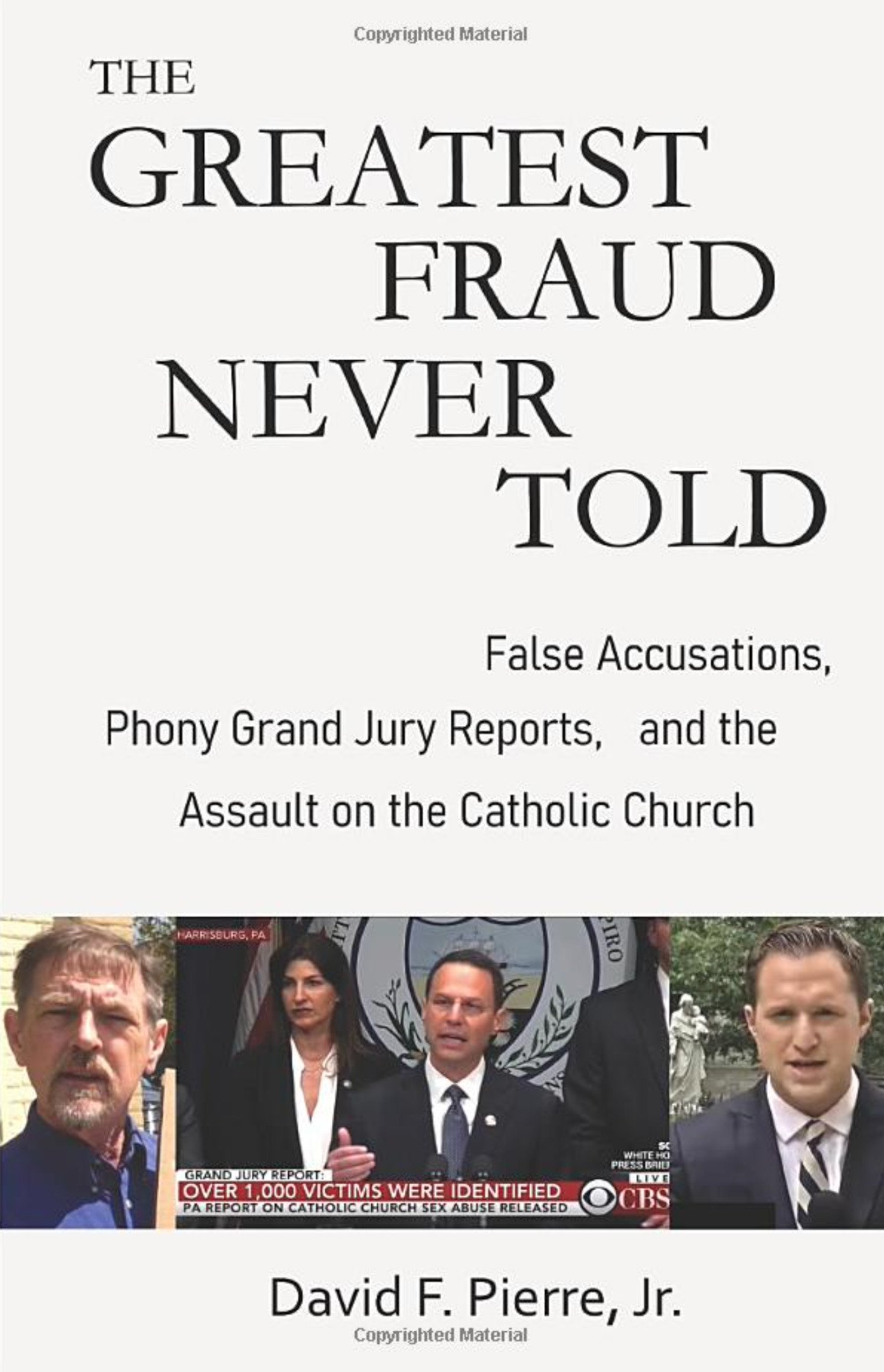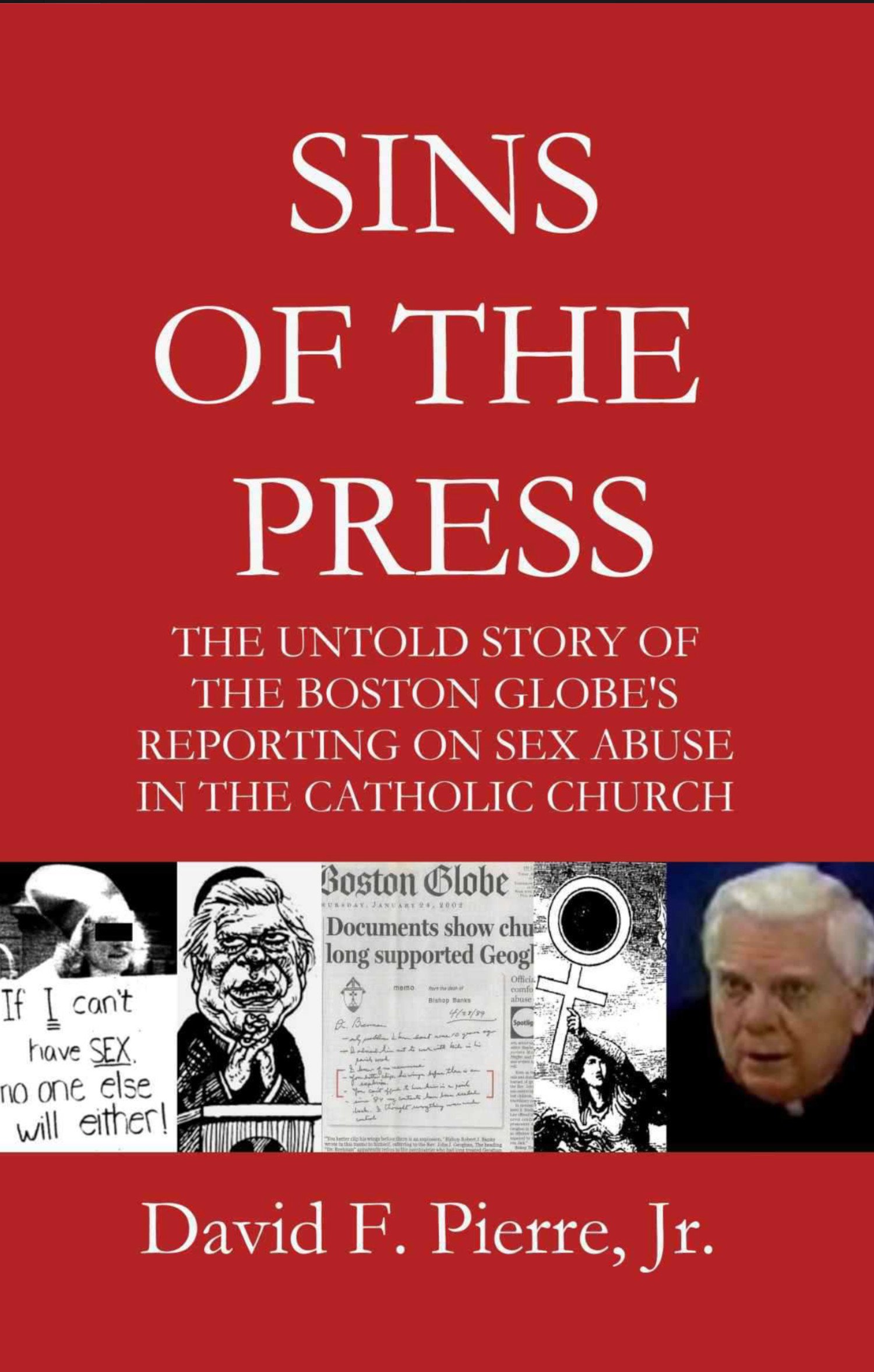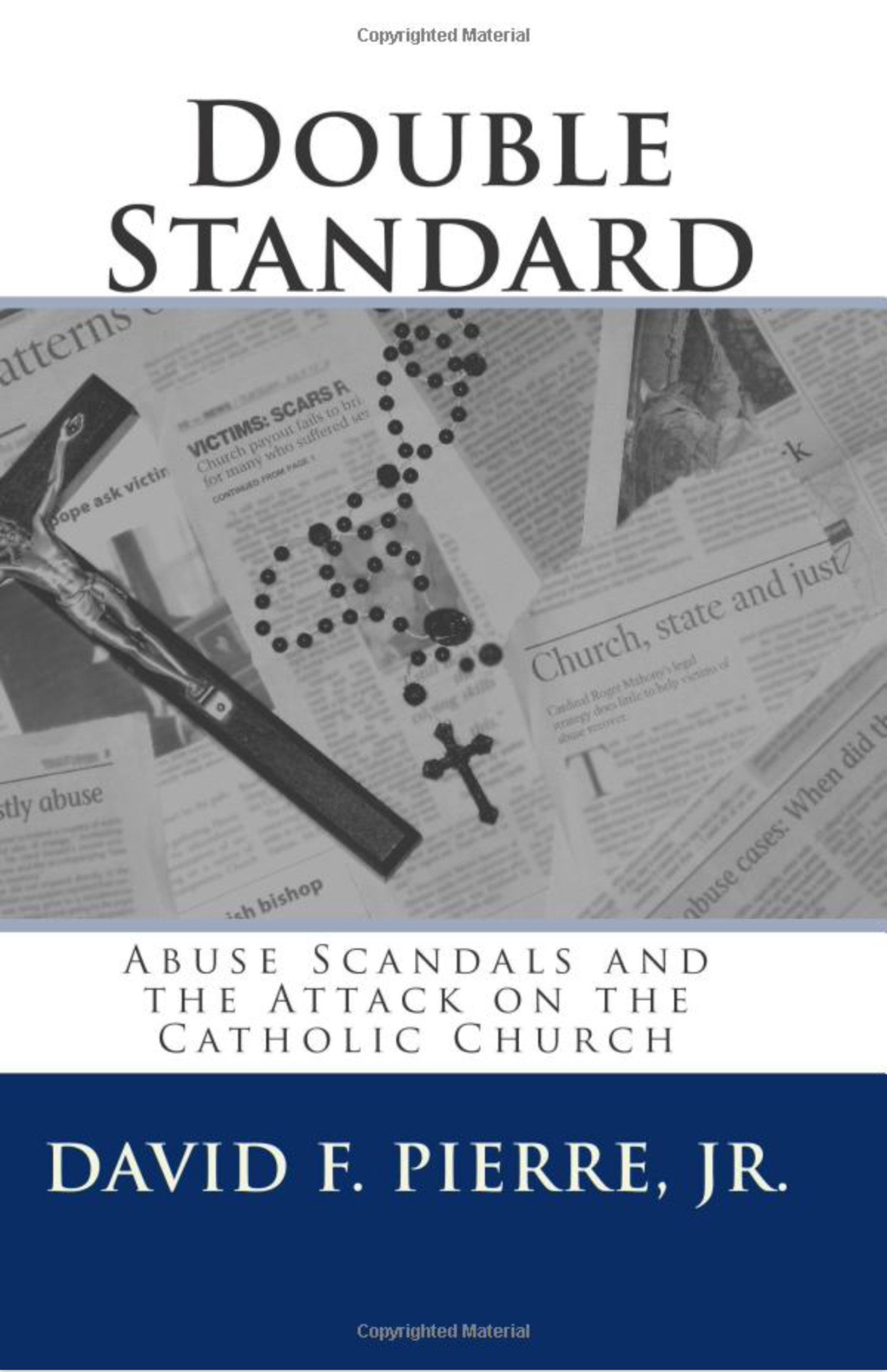“There are few authentic prophetic voices among us, guiding truth-seekers along the right path. Among them is Fr. Gordon MacRae, a mighty voice in the prison tradition of John the Baptist, Maximilian Kolbe, Alfred Delp, SJ, and Dietrich Bonhoeffer.”
— Deacon David Jones
Priests in Crisis: The Catholic University of America Study
While some high-profile priests are maligned from both in and beyond the Church, The Catholic University of America published its National Study of Catholic Priests.
While some high-profile priests are maligned from both in and beyond the Church, The Catholic University of America published its National Study of Catholic Priests.
“You will know them by their fruits. Are grapes gathered from thorns, or figs from thistles?”
— Matthew 7:16
January 11, 2023 by Fr. Gordon MacRae
In 2005, Catholic League President Bill Donohue was interviewed on the NBC Today show about accusations of sexual abuse by Catholic priests — some sadly true, but some also sadly false. Citing the case against me as an example, he said, “There is no segment of the American population with less civil liberties protection than the average American Catholic priest.”
Catholic priests in the United States have long been under assault from the news media, from activist groups, and at times even from within the Church. As most readers know, I have been the subject of many published articles, but not because I have been accused. It is because I strenuously refute the accusations as false. Much evidence has amassed in support of that. For some reason, this poses a threat to some nefarious agendas built around the sex abuse crisis in the Church.
When accused priests defend themselves in online media, seeding articles with vile comments using fake screen names had long been a tactic of SNAP, the Survivors Network of those Abused by Priests, an organization that sought not so much to support legitimate victims, but to maximize monetary awards and media condemnation. Its representatives terrorized Church officials with media manipulation whenever any accused priest is defended in the court of public opinion.
Despite all that, some standout news media have bravely produced articles and commentary against the tide of public vitriol about accused priests. The Wall Street Journal recently published its fourth such article about the case against me. The most recent was by Boston Attorney Harvey Silverglate entitled “Justice Delayed for Father MacRae.” This generated some excellent analysis by David F. Pierre, Jr. moderator of The Media Report. Those and other articles appear in our featured section, The Wall Street Journal.
I have much gratitude for Dorothy Rabinowitz, Harvey Silverglate, Ryan MacDonald, Bill Donohue, and David F. Pierre, Jr. for their valiant efforts to correct the public record. Without their truthful courage, I was at the mercy of nefarious means driven mostly by progressive political agendas and litigious greed. Most recently, however, even some bold Catholic writers have taken up the subject of Catholic Priests Falsely Accused.
The National Study of Catholic Priests
When I was first accused, my bishop and diocese published a press release declaring, without evidence, that I victimized not only my accusers, but the entire Catholic Church. That bishop’s successor later went on record to state his informed belief that I am innocent and should never have been in prison. Then his successor chose only to shun me, and to release my name on a public list of the “credibly” accused. He did this, he stated, for “transparency,” but that transparency has been highly selective.
My own experience leaves me with no trust at all that my bishop could, or would even try, to discern guilt from false witness in defense of me or any accused priest. Trust and distrust as the fallout from the scandal are now central issues in a recently published survey of 10,000 U.S. priests sponsored by The Catholic Project at The Catholic University of America in Washington, DC. I highly recommend reviewing a report on the study results entitled, “The National Study of Catholic Priests: A Time of Crisis.” It was the largest study on the state of the priesthood in fifty years. Here is an overview of its parameters:
“Over the last two decades, the clergy sexual abuse crisis in the Catholic Church has significantly eroded the trust between laity and clergy... Since the earliest days of the Dallas Charter there have been concerns that the bishops’ understandable eagerness to crack down on abusive priests was coming at the expense of due process protections for the accused: a de facto policy of ‘guilty until proven innocent.’ These concerns have been exacerbated by an expansion in the scope of the Church’s anti-abuse policies coupled with a perceived double standard in the way allegations against bishops have been handled in comparison to priests.”
Father Roger Landry, a columnist for the National Catholic Register, has an excellent analysis of The Catholic University of America study entitled, “Repairing the Relationship Between Priests and Bishops.”
The findings of the study are based on the responses of the thousands of U.S. priests who participated and submitted completed surveys. Given the difficult period of the last 20 years since the U.S. Bishops’ Dallas Charter was enacted, some of these responses are surprising, and point to the depth of commitment, spiritual life, optimism and resiliency of most priests. Most priests reported a high level of satisfaction in their ministry. A stunning 77% of priests self-reported that they are flourishing in their vocation.
Among the results, however, are some big red flags: 82% of priests report living with a fear of being falsely accused and left with no defense; 45% of priests report that they experience at least one symptom of ministry burnout, while 9% described their level of burnout as severe, and characterized by high levels of stress and emotional and physical exhaustion. Reports of high stress came particularly from younger priests. (I will get back to this later) .
The biggest concern among priests is related to the toll and fallout of the U.S. Bishops’ collective response to the sex abuse crisis in the Church. The sense of vulnerability among priests and their trust level for their bishops are the two most significant areas of negative fallout from the crisis.
In his NC Register column linked above, Father Roger Landry points to what I have called a disaster in the relationship between bishops and priests: the drafting and enactment of the 2002 “Dallas Charter” which imposed a draconian standard of “zero tolerance” and one-strike-and-you’re-out in response to any “credible” accusation against a priest. For an analysis of this standard of evidence, see my post, “The Credibility of Bishops on Credibly Accused Priests.”
Father Landry reports that the drafting of these policies in 2002 was done “hurriedly and under enormous pressure from the press, lawsuits and furious faithful.” Priests in the current study actually appreciated the efforts to respond to the crisis openly and with transparency. “But the priests surveyed gave stark testimony to the harms that have come from what the bishops in Dallas left out of balance.”
Guilty for Being Accused
The Vatican and Catholic hierarchy were unfairly maligned throughout publicity on “The Scandal.” At one point, SNAP partnered with the far-left, New York-based Center for Constitutional Rights to bring a crimes-against-humanity charge against Pope Benedict XVI at the International Criminal Court at the Hague. Some of the false claims against me were employed to shame Pope Benedict on a global scale. The scheme was nothing more than a publicity stunt to embarrass the Church into maximizing financial settlements. Many of its claims, including those against me were exposed as a fraud. Journalist Joann Wypijewski exposed this story in “Oscar Hangover Special: Why “Spotlight” Is a Terrible Film.”
Only in the Catholic Church is the highest echelon of governance blamed for the lowest level of misbehavior. Even in his later years, Benedict was demonized by German Catholics and others eager for any reason to blame him for the abuses of the past. Of interest, in the State of New Hampshire where I live more than 900 men between the ages of 20 and 50 have open lawsuits alleging systemic sexual abuse by State agents in the State’s juvenile detention facilities. Not one media outlet, not one victim group, not one of the victims themselves has blamed any of this on any present or former governor. This State carried out a witch-hunt in 2002 when the accused were Catholic priests. It is now confirmed that simultaneous to the witch-hunt was an active cover-up of the malfeasance of State agents.
As stated above, 82% of priests now report that they feel vulnerable to false accusations of sexual abuse that under existing policy will summarily end their ministry without due process. Compounding this fear, many report that they would be treated as guilty and left without support unless they could prove their innocence. Sixty-four percent said they would be left without support or resources to mount a defense, and almost half, 49%, think they would not be supported by their bishop. Father Landry added a sobering understanding of the reality:
“In most dioceses, when a priest is accused, he loses his home, his job, his good name — all within hours. He is removed immediately from his rectory and parish assignment, prevented from public ministry for the length of what is often an inexcusably glacial investigation, and required to dress like a layman. A press release is published in which the priest’s reputation is injured, if not ruined. He needs to exhaust his meager savings or beg and borrow money to hire a lawyer. Most excruciatingly, he has to linger for months or years under suspicion of being a sadistic pervert as well as a hypocrite to the faith for which he has given his life.”
Given the reality that most claims against priests are many years or decades old, establishing clear evidence is difficult if not impossible. So the bishops adopted what they called the “credible” standard. It means only that if a priest and an accuser lived in the same parish or community 20, 30, or 40 years ago, the accusation is “credible” on its face. No one in America but a Catholic priest could lose his livelihood, his reputation, sometimes even his freedom, under such a standard. I exposed one such case in “The Exile of Father Dominic Menna and Transparency at The Boston Globe.”
I am most appreciative to Father Roger Landry and the National Catholic Register for their bold and transparent analysis of what actually happens to an accused priest. By taking all the steps a diocese or bishop imposes above, such a priest is effectually silenced and unable to defend himself at all.
Stress along the fault lines between bishops and priests that these policies have caused is also clear in the survey. There is a wide disparity between how bishops view themselves and how they are viewed by their priests. Seventy-three percent of bishops reported viewing priests as their brothers. Only 28% of priests reported that their bishops treat them that way.
The disconnect revealed itself in several other ways as well: 70% of bishops reported that they are spiritual fathers to their priests while only 28% of priests thought the same. Father Landry reported that the biggest disconnect relates to a priest who is struggling. Ninety-percent of bishops reported that they would be present to and supportive of a struggling priest while only 36% of priests thought that this is true.
The Double Standard
Also evident in both the survey and Father Landry’s analysis of it is the double standard created when bishops failed to hold themselves accountable to the same standards imposed on their priests. In 2002, as the Charter was being debated during the U.S. Bishops Conference at Dallas, Cardinal Avery Dulles published a landmark article in America magazine entitled “The Rights of Accused Priests.”
The article was cheered by priests but largely ignored by bishops. Cardinal Dulles cited a 2000 pastoral initiative of the U.S. bishops entitled “Responsibility and Rehabilitation.” It criticized the U.S. justice system for the establishment of one-size-fits-all norms such as “zero tolerance” and “one strike and you’re out.” Then the same bishops, in a media panic, imposed those same standards on their priests.
But none of it ever applied to accusations against bishops, a reality that Father Landry described as “a double standard that profoundly affected their relationship [with priests].” While deliberating adoption of the Dallas Charter, the bishops removed the word “cleric,” which could have included bishops, and replaced it with “priests and deacons.” Now 51% of priests report that they do not have confidence in their bishop while 70% report a lack of confidence in bishops in general.
In a 2019 apostolic letter, Vos Estis Lux Mundi, Pope Francis addressed some of the disparities with mixed results. Father Landry points out that investigations of bishops, even in allegations of past sexual abuse, “seldom involve the draconian measures experienced by priests.”
I have written of a glaring example in my own diocese. Citing a desire for “transparency,” and with no one pressuring him to do so, my bishop proactively published in 2019 a list of the names and status of 73 priests of this diocese who had been “credibly” accused over fifty years. Most are deceased. Weeks later, a New Hampshire Superior Court judge barred publication of information from a grand jury investigation which was the source for most of the Bishop’s list. Ryan MacDonald wrote of the reasons for that in “Our Bishops Have Inflicted Grave Harm On the Priesthood.”
Months after publishing his list, my bishop was himself accused in a civil lawsuit in the Diocese of Rockville Center, New York. He was unjustly caught up in the political fallout of former New york Governor Andrew Cuomo who generated the claims when he signed into law an exemption window in which old time-barred accusations can be brought forward after the statute of limitations had run. I defended my bishop in a widely read post, “Bishop Peter A. Libasci Was Set Up by Governor Andrew Cuomo.”
Conservative Priests Face Greater Scrutiny
I mentioned above that I would revisit one finding of this report — that younger priests experience more stress than older priests. A separate research report on Catholic priests by the Austin Institute has documented that younger priests tend to be more conservative and traditional than older priests. That bears out from observations of our readers who find this distinction to be a positive development. Writing for The Wall Street Journal, Vatican Correspondent Francis X. Rocca reported on this in “Catholic Ideological Split Widens” (Dec.19, 2022):
“U.S. Catholic bishops elected conservative leaders last month, continuing to resist a push from Pope Francis to put issues such as climate change and poverty on par with the bishops’ declared priority of opposing abortion.”
The bishops appointed by Pope Francis tend to mirror his priorities. His recent elevation of San Diego Archbishop Robert McElroy, a leading liberal among U.S. bishops, to the College of Cardinals is an example. There is thus a growing disparity in liberal vs. conservative views as newly appointed bishops are more liberal while priests newly emerging from U.S. seminaries are more conservative and traditional.
Since the 1980s, successive annual ordinations have grown more conservative. Each successive 10-year grouping in the ordained priesthood supports Church teaching on moral and theological issues more strongly than the one before it. Those ordained after 2010, as a whole, are most conservative. When seminarians and younger priests do not have their views of the Church and Catholic practice affirmed, stress develops and increases. Younger U.S. priests represent a generation disillusioned with ideas of progress and religious pluralism, and the abandonment of the Church’s prolife charism in favor of topics like climate change.
This leaves a widening chasm between Pope Francis, his Episcopal appointments, and younger priests in the United States. The Catholic Project study also reveals that almost 80% of priests ordained before 1980 approve strongly of Pope Francis while only 20% of those ordained after 2010 share that view. Is their priestly interest in respect for tradition a plague upon the Church?
Or is it the whispering of the Holy Spirit?
+ + +
Note from Father Gordon MacRae: This brief essay from American Thinker by Attorney Franklin Friday is perhaps the best commentary on the future Church after the death of Pope Benedict XVI, and not only because I am in it. Please read and share this timely article: No Easy Road for Men of God.
You may also be interested in these related posts from Beyond These Stone Walls:
The Once and Future Catholic Church
Forty Years of Priesthood in the Mighty Wind of Pentecost
+ + +
One of our Patron Saints, Saint Maximilian Kolbe, founded a religious site in his native Poland called Niepokalanowa. The site has a real-time live feed of its Adoration Chapel with Exposition of the Blessed Sacrament. We invite you to spend some some time before the Lord in a place that holds great spiritual meaning for us.
Click or tap the image for live access to the Adoration Chapel.
As you can see the monstrance for Adoration of the Blessed Sacrament is most unusual. It is an irony that all of you can see it but I cannot. So please remember me while you are there. For an understanding of the theology behind this particular monstrance of the Immaculata, see my post “The Ark of the Covenant and the Mother of God.”
The Media Report: Catholic Priests Falsely Accused
David F. Pierre, Jr. is a widely acclaimed author on the Catholic abuse story. One of the cases presented in his book, entitled above, is that of Fr. Gordon MacRae.
David F. Pierre, Jr. is a widely acclaimed author on the Catholic abuse story. One of the cases presented in his book, entitled above, is that of Fr. Gordon MacRae.
October 19, 2022 by David F. Pierre, Jr.
A Message from David F. Pierre, Jr.:
“When I published my book Catholic Priests Falsely Accused over a decade ago, I never thought that the contents would still reverberate today and that the chapter on the case of Fr. MacRae would especially impact its readers. Since the book was released, there have been numerous additional revelations further vindicating Fr. MacRae — as Beyond These Stone Walls has compiled — and I consider the chapter just one piece of many chronicling the many important aspects of the case.”
The case of Father Gordon J. MacRae — from the Diocese of Manchester (New Hampshire) — falls into a category all its own. No single case in the Catholic Church abuse narrative has been more feverishly debated. The case has bitterly polarized observers for several years. There are those who maintain the priest’s guilt and those who forcefully assert his innocence.
Since 1994, Fr. MacRae has been incarcerated in the New Hampshire State Prison for Men. On September 23, 1994, a jury convicted the priest of repeatedly molesting a teenage boy during counseling sessions and elsewhere. A judge later sentenced the cleric to 67 years in prison.
Fr. Gordon vehemently asserts his innocence and claims that he is falsely accused. With the help of outside supporters, an old typewriter, and the use of traditional postal mail, Fr. MacRae authors BeyondTheseStoneWalls.com from his small prison cell. Fr. MacRae utilizes the blog not just as a forum to assert his innocence. He also posts thoughtful spiritual and theological commentary. BeyondTheseStoneWalls.com is truly a compelling venue on the Internet.
What are the facts in this controversial case? Those who believe Fr. Gordon’s guilt is demonstrable gesture to reams of court documents and articles available at an anti-Church watchdog site. However, as with so many other cases, there is an alarming opposite side to Fr. MacRae’s narrative that has not been widely told.
The criminal conviction of Fr. Gordon in 1994, which would catapult him to his sentence of 67 years in prison, rested on the uncorroborated testimony of one individual. The man’s name is Thomas Grover [who at this writing is 55 years of age]. Amazingly, two of Thomas’ brothers and two other men — known to the Grover boys — also accused Fr. Gordon of molesting them. Yet only the claims of Thomas Grover would be the subject of an actual criminal trial.
It is certainly a matter of debate whether the justice system yielded a fair trial for Fr. Gordon. Although the accuser Grover had a lengthy juvenile and adult criminal history of “theft, assault, forgery and drug offenses,” the presiding judge, the Hon. Arthur D. Brennan, did not allow the priest’s defense to present this as evidence. Had the judge allowed this important information, the jury may have examined Grover’s claims a bit more critically.
Indeed, Thomas Grover’s accusations were quite untenable. According to the court testimony of Grover, Fr. Gordon repeatedly sexually assaulted him about a decade earlier during four different counseling sessions in 1983, when he was fifteen years old. Asked at trial why he would repeatedly return week after week to counseling sessions at which he had been previously attacked, Grover testified that he had “repressed” the memory of the experience after each assault. He claimed that he had an “out-of-body experience” which resulted in him completely forgetting the fact that he had been victimized during the previous visit.
In addition, according to trial testimony, when Grover attended a drug treatment center in 1987, he told a counselor that his father had abused him. Grover did not cite the priest as an abuser. In fact, the accuser identified the priest by name to his counselor in only one instance. Grover wrote Fr. MacRae’s name on his discharge contract indicating that the priest would be his sponsor in sobriety. She reported that Grover went on in therapy to accuse so many people of sexually abusing him that the staff thought “he was going for some kind of sexual abuse victim world record.” But he never accused Fr. MacRae.
In a previous deposition under oath, Grover made more bizarre claims about Fr. Gordon, one of which was that the priest had chased him with a car. “And he had a gun,” the accuser added, “and he was threatening me and telling me over and over that he would hurt me, kill me, if I tried to tell anybody, that no one would believe me. He chased me through the cemetery and tried to corner me.” However, at Fr. MacRae’s trial, the prosecution did not call a single witness to corroborate the public spectacle of a priest with a gun in a car chasing a boy through a cemetery.
As the trial progressed, even the prosecution could see that Thomas Grover had serious credibility problems. In the middle of the trial, after Grover’s flimsy appearance, the prosecution offered Fr. Gordon a plea bargain in which the priest would agree to serve only a maximum of two years in jail in exchange for an admission of guilt. It was not the first time the prosecution extended such a generous deal. On two other occasions before the court case — six months before trial and again a week before trial — the state offered plea deals to Fr. Gordon, both of which would ask that he serve no longer than three years in prison. The prosecution would have loved to have seen the priest take the offers.
But Fr. Gordon was adamant. He would not plead guilty to charges that he maintained were false. “I am not going to say I am guilty of crimes I never committed so that the Grovers and other extortionists can walk away with hundreds of thousands of dollars for their lies,” the priest asserted.
The trial progressed, and although Thomas Grover’s testimony may have seemed hard to believe on the surface, the accuser was effectively theatrical during his appearance. He railed against the priest for “forcing” him to withstand the agony of a trial. In addition, during Grover’s testimony, the accuser’s therapist — retained by the man’s contingency lawyer — reportedly coached her former patient while sitting in open view inside the courtroom. Apparently directed by the therapist, Grover became emotional at strategic moments during his testimony. Courtroom witnesses have reported that when Grover was confronted with difficult questions, the therapist would gesture to her patient that he should cry. Grover would then become emotional and dramatic, often leading the judge to call a recess.
Meanwhile, Judge Brennan purposefully ordered the jury to “disregard inconsistencies in Mr. Grover’s testimony.” To the shock of Fr. Gordon, the jury returned with a guilty verdict in less than 90 minutes.
At Fr. Gordon’s sentencing, the prosecution efficiently utilized accusations of abuse charges by other men. Stomach-turning stories of child pornography also impacted the jury. An angry Judge Brennan railed against the convicted priest. He berated the cleric for his “lack of remorse” over his crimes. (Lost on the judge was the fact that the priest forcefully maintained his innocence and had rejected three different plea offers.) Building upon his rage, the judge added, “The evidence of your possession of child pornography is clear and convincing.”
There was one problem, however. “There was never any evidence of child pornography,” the lead detective on the case later admitted to The Wall Street Journal.
Under New Hampshire prison guidelines, Fr. Gordon will never be eligible for parole unless he admits guilt. As with the case of Msgr. McCarthy (Chapter 6), Father Gordon’s narrative highlights the zeal with which some detectives will seek a prosecution, despite the claims presented to them.
The criminal case against Fr. Gordon actually began when one of Thomas Grover’s brothers, Jonathan, approached Keene, New Hampshire, Detective James McLaughlin with the claim that Fr. Gordon had abused him years earlier. However, Jonathan did not just accuse Fr. Gordon of abuse; he accused a second priest as well — Fr. Stephen Scruton. However, as Detective McLaughlin further examined Jonathan’s claims, he realized that Fr. Scruton did not even serve at the parish of the alleged abuse until years after Jonathan claimed that the acts took place.
With this startling discovery of fact, many detectives would have concluded that Jonathan was not being truthful. There would even be more reason to doubt Jonathan when two of his brothers came forward to claim similar abuse by the two priests. But rather than dropping the investigation altogether and issuing charges against Jonathan for filing a false report, McLaughlin continued his crusade by simply scrubbing the existence of Fr. Scruton from future investigations altogether. [It was at this point in police reports that Detective McLaughlin gave the Grover brothers a copy of Fr. MacRae’s resume “to help them with their dates.”]
In the course of trying to nab Fr. MacRae, McLaughlin initiated a couple of attempted “stings” to get the priest to admit to the alleged abuse. One was a letter claiming to be from Jonathan Grover that “recalled” several sexual escapades and declared that the “sex between us was very special.” Fr. Gordon replied to the letter by saying that the letter writer must be an imposter, because no such acts ever took place. McLaughlin also attempted a number of secretly recorded phone calls to try to bust the priest, but none of them yielded anything incriminating. The calls were an utter failure, by all investigative measures.
Fr. Gordon would have been out of prison long ago if he had accepted the plea deals and admitted guilt. Instead, in staunchly maintaining his innocence, he will likely live in a prison cell for the remainder of his life.
In recent years, even more evidence has surfaced to support the claim that Fr. Gordon was falsely accused. One of the priest’s accusers (not Thomas Grover) has reportedly recanted his claims. In early 2011, a document surfaced in which the accuser plainly acknowledges that fraud was committed against Fr. Gordon and the Catholic Church. According to a New York investigative writer, the document says:
“I was aware at the time of the trial, knowing full well that it was bogus and having heard of the lawsuits and money involved, and also the reputations of those making accusations … whom I went to school with. It seemed as though it would be easy money if I would also accuse Fr. Gordon of some wrongdoing. … I believed easy money would come from lawsuits against MacRae. I was at the time using drugs and could have been influenced to say anything they wanted for money.” [Signed statement of Steven Wollschlager]
So despite the tempting opportunity of a high-stakes payout, the man refused to go along with what he saw was a gross money-grubbing scam.
In 2005 and 2013, Pulitzer Prize-winning writer Dorothy Rabinowitz profiled the case of Fr. Gordon for a trio of eye-opening articles for The Wall Street Journal. After months of studying court documents and combing through testimonies, Rabinowitz concluded that Fr. MacRae was clearly a victim of fraud and was wrongly convicted.
Sadly, under intense public pressure from events of the past decade, Church officials have essentially abandoned Fr. Gordon. Despite the fact that evidence possibly indicating innocence continues to surface, Church officials have kept their distance from the incarcerated cleric. While Church officials have publicly supported the prosecution of Fr. Gordon, there are reports that privately they admit that the cleric may have been falsely accused. For example, in 2011, two signed statements surfaced which claim that Bishop John McCormack, the longtime head of the Diocese of Manchester, has privately stated that he believes Fr. Gordon is innocent.
One such statement comes from a man who once worked at a television station that was to profile Fr. Gordon’s case. It quotes Bishop McCormack as saying to the man, “Understand, none of this is to leave this office. I believe Father MacRae is not guilty and his accusers likely lied. There’s nothing I can do to change the verdict,” Bishop McCormack said, according to the statement. [See Fr. George David Byers, “Omertà in a Catholic Chancery: Affidavits Expanded”]
The man submitted his statement about Bishop McCormack’s remarks because he believed there was a glaring injustice in the inconsistency between the Bishop’s public actions and his private statements.
Should the case against Father Gordon MacRae be reviewed? Considering the totality of the evidence, especially that which has surfaced in recent years, the answer is, “Yes.” Justice demands it.
In addition, recent developments and emerging information will likely result in appeals of Fr. MacRae’s case. Stay tuned.
David F. Pierre, Jr. is the country’s leading observer of the media’s coverage of the Catholic Church abuse narrative and is the author of four books. His most recent is The Greatest Fraud Never Told: False Accusations, Phony Grand Jury Reports, and the Assault on the Catholic Church. David has been heard on National Public Radio (NPR) and cited in the New York Times, the Chicago Tribune, USA Today, and many other media outlets. He is the creator and author of TheMediaReport.com, an educational cooperative to chronicle and monitor the mainstream media’s coverage of the Catholic Church sex abuse narrative. He lives with his wife and family in Massachusetts.
Bogus Charges Against Priests Abound
Editor’s Note: In a 2012 article for Catalyst, the Journal of the Catholic League for Religious and Civil Rights, Rev. Michael P. Orsi, research fellow in Law and Religion at Ave Maria School of Law, wrote an extended review of David F. Pierre’s book cited above. His review is titled “Bogus Charges Against Priests Abound.”
The following is an excerpt from that review:
Catholic Priests Falsely Accused: The Facts, The Fraud, The Stories by David F. Pierre, Jr., Mattapoisett, Massachusetts: www.TheMediaReport.com
“David Pierre is one of the country’s leading observers of the Catholic Church abuse narrative. In Catholic Priests Falsely Accused: The Facts, the Fraud, the Stories, he presents case studies backed by hard data which clearly demonstrates some of the injustices foisted on Catholic priests and the Church. ...
“A sure way to ameliorate the injustices perpetrated against priests and to rehabilitate the reputation of the Church would be to re-examine the cases of those priests found guilty due to false or dubious abuse claims filed against them. The widely reported case of Fr. Gordon MacRae, of the Diocese of Manchester, New Hampshire, would be a good place to start. Pierre outlines it in his book. It is quite obvious that Fr. MacRae did not receive a fair trial according to the facts cited in a piece published in The Wall Street Journal.
“MacRae’s accuser, a fifteen year old boy, had a lengthy juvenile record and presented doubtful evidence in trial testimony. The judge even went so far as to order the jury to ‘disregard inconsistencies in Mr. Grover’s (his accuser) testimony.’ Father MacRae, protesting his innocence, refused a plea bargain deal of two years in prison. Now he is serving a 67 year sentence. His own, now retired, bishop believes him to be innocent. What a moral boost this would be for the nation’s priests and for the Catholic laity ... to have this case reopened!”
+ + +
BREAKING NEWS: Just as this post went to print, David F. Pierre, Jr. and The Media Report published “Twice Is a Charm? Wall St. Journal Again Profiles Stunning Case of Wrongfully Convicted Priest Fr. Gordon MacRae.”
To learn more about the rampant fraud, dishonest grand jury investigations, and career-building prosecutorial misconduct behind the Catholic Church abuse story, please consult these additional books by David F. Pierre, Jr. and The Media Report. Father Gordon MacRae also urges readers to subscribe to The Media Report.




